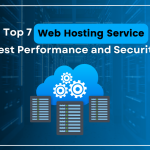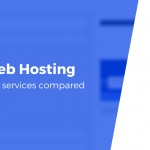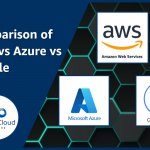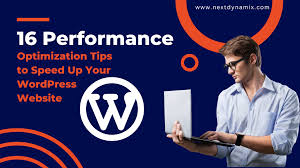INTRODUCTION
In today’s digital landscape, having a robust and user-friendly website is essential for businesses of all sizes. However, creating and maintaining a website from scratch can be a daunting task, especially for those without extensive technical knowledge. This is where Content Management Systems (CMS) come into play. A CMS is a software application that allows users to create, manage, and publish content on a website without the need for extensive coding skills.
With the vast array of CMS options available, choosing the right one for your site can be a challenging endeavor. Each CMS has its own unique features, strengths, and weaknesses, making it crucial to evaluate your specific needs and requirements before making a decision. In this article, we will explore the key factors to consider when selecting a CMS, highlighting the most popular options and their respective pros and cons.
UNDERSTANDING YOUR WEBSITE’S NEEDS
Before diving into the world of CMS platforms, it is essential to have a clear understanding of your website’s objectives and the functionality you require. Ask yourself the following questions:
- Purpose: What is the primary purpose of your website? Is it an e-commerce platform, a blog, a portfolio site, or a corporate website?
- Content Management: How complex is the content you plan to manage? Will you need to incorporate multimedia elements, such as videos and images, or will it primarily be text-based content?
- User Roles and Permissions: How many users will be involved in managing the website’s content? Do you require different levels of access and permissions for different user types?
- Scalability: Do you anticipate significant growth in terms of content, traffic, or features in the near future?
- Design and Customization: How important is the ability to customize the website’s design and layout to match your brand identity?
Answering these questions will help you identify the essential features and functionalities you require from a CMS, making it easier to narrow down your choices.
POPULAR CMS OPTIONS
WORDPRESS
WordPress is one of the most widely used CMS platforms globally, powering millions of websites. Initially designed as a blogging platform, WordPress has evolved into a versatile CMS capable of handling a wide range of website types, from personal blogs to e-commerce stores and corporate sites.
Pros:
- User-friendly interface and easy learning curve
- Extensive plugin and theme ecosystem for added functionality and customization
- Strong community support and excellent documentation
- Highly scalable and suitable for websites of all sizes
- Free and open-source software with frequent updates and security patches
Cons:
- Limited built-in e-commerce capabilities (requires additional plugins)
- Potential security vulnerabilities if not properly maintained and updated
- Customization can be challenging for complex websites without technical expertise
DRUPAL
Drupal is a powerful and flexible open-source CMS that is particularly well-suited for large, complex websites and applications. It is widely used by governments, educational institutions, and enterprises.
Pros:
- Highly customizable and scalable
- Robust security features and frequent security updates
- Extensive functionality through contributed modules
- Suitable for building complex, content-rich websites and applications
- Strong community support and documentation
Cons:
- Steeper learning curve compared to other CMS platforms
- Limited built-in functionality for simple websites (requires additional modules)
- Potential performance issues if not properly configured and optimized
JOOMLA
Joomla is another popular open-source CMS known for its flexibility, scalability, and ease of use. It is often favored by businesses, organizations, and individuals seeking a versatile platform for building various types of websites.
Pros:
- User-friendly interface with a visual page builder
- Extensive extension ecosystem for added functionality
- Multilingual support out of the box
- Strong security features and regular updates
- Suitable for a wide range of website types, including e-commerce
Cons:
- Limited built-in functionality for complex websites (requires additional extensions)
- Potential performance issues with large databases or high traffic loads
- Smaller community and fewer resources compared to WordPress or Drupal
SQUARESPACE
SquareSpace is a proprietary, cloud-based CMS that offers a modern and visually appealing platform for building websites. It is renowned for its sleek designs and user-friendly interface, making it a popular choice for creatives, small businesses, and individuals.
Pros:
- Stunning pre-designed templates and easy visual editing
- All-in-one platform with built-in e-commerce, blogging, and marketing tools
- Excellent mobile responsiveness and optimization
- Hosting and domain management included
- No coding required for basic website creation
Cons:
- Limited customization options compared to open-source CMS platforms
- More expensive than some open-source alternatives
- Lack of flexibility and control over the underlying code
- Potential vendor lock-in due to proprietary nature
WIX
Wix is another popular proprietary, cloud-based CMS that aims to make website creation accessible to everyone, regardless of technical expertise. It offers a drag-and-drop interface and a vast collection of templates and design elements.
Pros:
- Intuitive drag-and-drop website builder
- Extensive library of templates and design elements
- Built-in e-commerce, blogging, and marketing tools
- Hosting and domain management included
- No coding required for basic website creation
Cons:
- Limited customization options and flexibility
- Potential performance issues with complex or content-heavy websites
- More expensive than open-source alternatives for advanced features
- Vendor lock-in due to proprietary nature
FACTORS TO CONSIDER
When choosing the right CMS for your site, consider the following factors:
1. Ease of Use and Learning Curve If you or your team have limited technical expertise, prioritize user-friendliness and a gentle learning curve. Platforms like WordPress, SquareSpace, and Wix offer more intuitive interfaces and simpler content management workflows.
2. Functionality and Features Evaluate the out-of-the-box features offered by each CMS and determine if they align with your website’s requirements. Consider factors such as e-commerce capabilities, multimedia support, multilingual support, and third-party integrations.
3. Customization and Flexibility If you require extensive customization or plan to build a complex website, open-source CMS platforms like WordPress, Drupal, and Joomla may be better suited, as they offer greater flexibility and control over the underlying code.
4. Scalability and Performance Assess your website’s potential for growth and choose a CMS that can handle increased traffic, content, and feature demands. Platforms like Drupal and WordPress are generally more scalable, while proprietary solutions like SquareSpace and Wix may have limitations for large-scale websites.
5. Security and Updates Security should be a top priority when selecting a CMS. Look for platforms with regular security updates, active development communities, and robust security features to protect your website from vulnerabilities and cyber threats.
6. Community Support and Resources A strong community and ample resources can be invaluable when troubleshooting issues or seeking guidance. Open-source CMS platforms like WordPress, Drupal, and Joomla typically have larger and more active communities, while proprietary solutions may have limited support channels.
7. Cost and Budget Evaluate the upfront and ongoing costs associated with each CMS, including licensing fees, hosting, themes, plugins, and potential development or maintenance costs. Open-source solutions are generally more cost-effective, while proprietary platforms may offer packaged pricing for hosting and additional services.
CONCLUSION
Choosing the right Content Management System (CMS) for your website is a critical decision that can significantly impact your online presence, functionality, and long-term success. By carefully evaluating your website’s needs, understanding the strengths and weaknesses of various CMS options, and considering factors such as ease of use, functionality, customization, scalability, security, and cost, you can make an informed decision that aligns with your goals and requirements.
Remember, no one-size-fits-all solution exists, and the ideal CMS for your site may differ from others based on your specific circumstances. It’s essential to prioritize your website’s objectives, budget, and desired features to find the perfect CMS that empowers you to create and manage a stunning, functional, and effective online presence.















![How To Migrate WordPress Site To New Host Or Server? [Free]](https://webhostingtechy.com/wp-content/uploads/2024/03/migrate-wordpress-site-74x55.png)